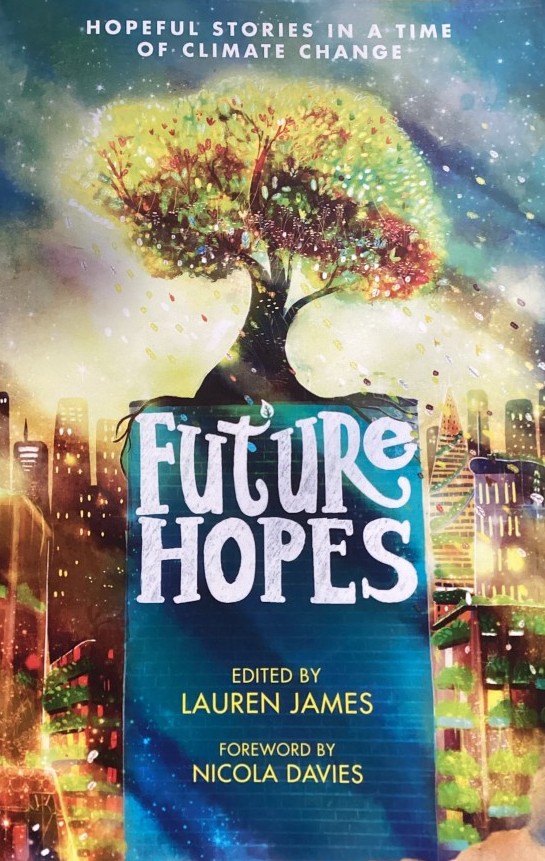Inspiring Young Readers
 posted on 25 Apr 2024
posted on 25 Apr 2024
Future Hopes edited by Lauren James
There can be few more depressing indicators of the quality of life for children in UK and around the world than the constant drip of survey data that shows sharp declines in the overall happiness of young children and teenagers.
All sorts of arguments rage about the causes of childhood distress – for example, most people will, I’m sure, be aware of the debate around the role of social media and access to technology at very young ages, It is, sadly, also true that children and young people have some even bigger and longer term issues to be legitimately worried about - and one of those is the future of the planet and its environment. There can no longer be anyone who doubts that the future environment that the young will inherit is going to be significantly different to the one their grandparents and parents grew up in – and potentially more hostile.
The size of that problem and the often apocalyptic tones in which the discussion takes place seems guaranteed to make some children despair. How is it possible that they can make a difference or influence that debate? It must feel to many youngsters as if the world is heading to hell in a handcart and you are doomed to just be the collateral damage when it all hits the fan.
There’s no doubt that children and young people need to feel that positive futures are possible – that even if life changes shape, the human spirit can survive and come through to the other side. And that’s why it’s good to see this collection of short stories, Future Hopes, being published with the tag-line ‘Hopeful stories in a time of climate change’.
Here are nine short stories by some of todays best young adult authors which ask the reader to imagine positive outcomes rather than dystopian nightmares. Try a bit of ‘guerilla gardening’ for example – tending to the soil and the plants in places where no-one has asked you to go. Or maybe the solution to our future food problems lies in eating insects – lime-flavored crickets anyone? What about being the best gardener and food producer in your tower block?
Each of the stories is followed by some brief observations by Lauren James who tries hard to anchor each story in a practical reality. There’s also a foreword by Nicola Davies, one of the great champions of the natural world, and some tips at the end for how to live more sustainably.
Teachers will be delighted to hear that the various appendices in the back of the book also include some model questions for discussion raised by the stories, a useful glossary and a guide to other resources in the same field.
Published by Walker Books, you will be able to get your copy from your local independent bookshop – who will, of course, be happy to order a copy for you if they don’t have them on their shelves.
Terry Potter
April 2024